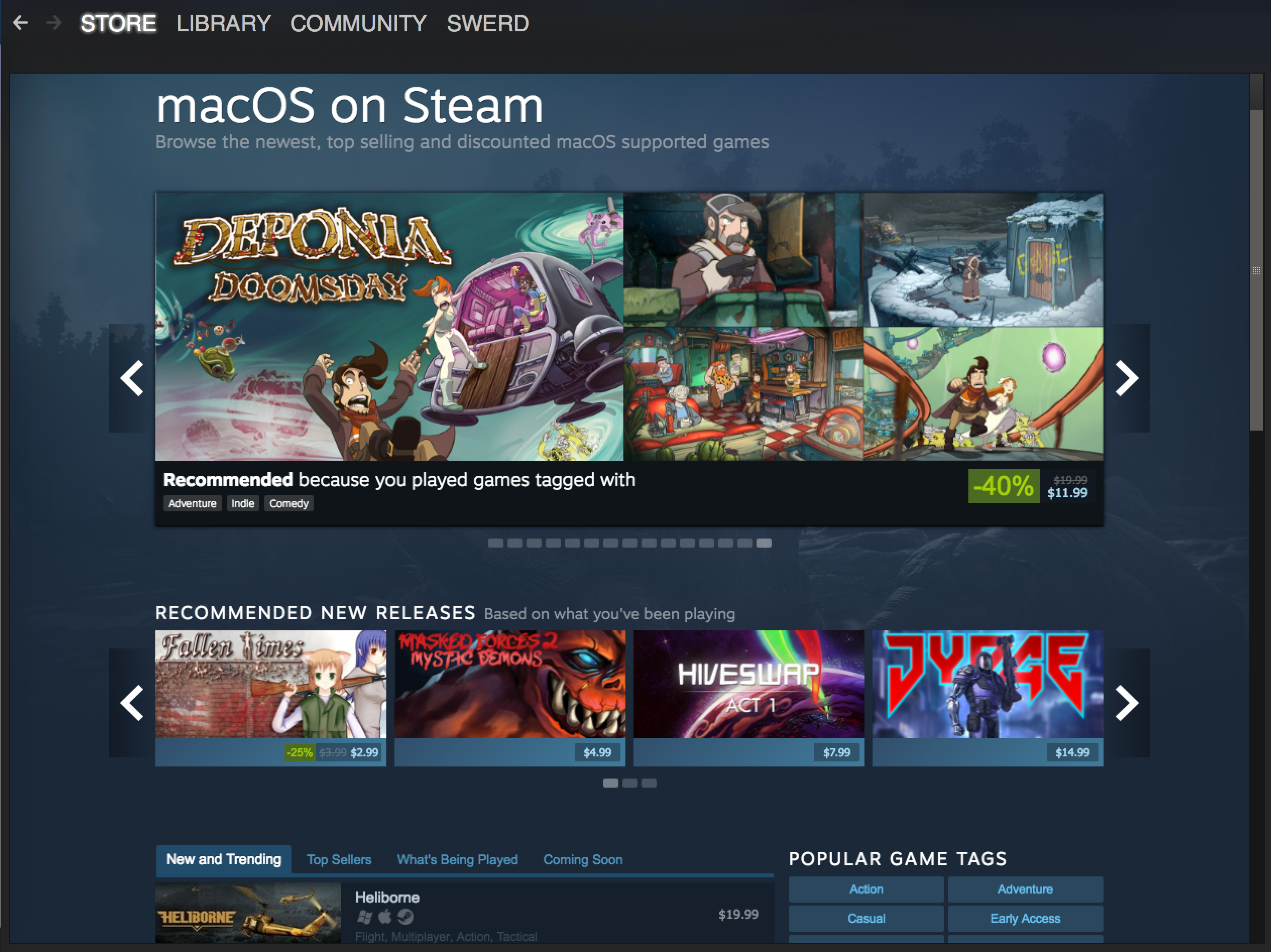PC gamers might be all too happy to take advantage of those sweet deals during the regular sale events offered on Steam. However, many would also like the ability to re-sell the games they bought. Unlike with physical discs, there is currently no way for gamers to sell their digital copies of used games. If a startup called Robot Cache comes through on its promise, this might soon change.
Robot Cache markets itself as a Steam rival, which is capitalizing on Blockchain to sell its brand, Eurogamer reports. The company labels itself as the "first decentralised PC video game distribution platform," which is quite the bold claim to make. Then again, it seems there is some substance to its confidence since it’s supported by gaming veterans.
The platform counts InXile's Brian Fargo and Atari founder Nolan Bushnell as some of its backers. According to CEO Lee Jacobson, the main goal of the company is to leverage the power of Blockchain to provide more flexibility and transparency to PC gaming.
As to what its plans for PC games are, the company claims that it would soon allow players to sell digital copies of titles and get some of the money back; emphasis on some. Apparently, 70 percent of the profit from the sale of used games will go to the developers or publishers, while only 25 percent will go to the players. The remaining five percent will then presumably go to Robot Cache.
When selling new games, the platform is also boasting that the developers and publishers will get 95 percent of the cut from the sales, which is significantly larger than what is offered by other digital distribution entities. Steam, for example, takes 30 percent of the profit when selling games, leaving developers with only 70 percent.
Not everyone is sold on the concept, however, with Ars Technica expressing skepticism over the idea. While Robot Cache claims that Blockchain will help reduce expenses, thus allowing for more leeway in what it charges developers for using its platform, the publication highlights the caveats that come with the proposition.
For one thing, the prices of the used games will be determined by the company. For another, there’s the matter of the cryptocurrency IRON, which customers can use to buy or sell games on the platform. Ars is particularly worried about the supposed value of IRON, which it notes won’t be as reliable as actual cash.



 Elon Musk’s Empire: SpaceX, Tesla, and xAI Merger Talks Spark Investor Debate
Elon Musk’s Empire: SpaceX, Tesla, and xAI Merger Talks Spark Investor Debate  SpaceX Prioritizes Moon Mission Before Mars as Starship Development Accelerates
SpaceX Prioritizes Moon Mission Before Mars as Starship Development Accelerates  Nvidia CEO Jensen Huang Says AI Investment Boom Is Just Beginning as NVDA Shares Surge
Nvidia CEO Jensen Huang Says AI Investment Boom Is Just Beginning as NVDA Shares Surge  Nvidia Confirms Major OpenAI Investment Amid AI Funding Race
Nvidia Confirms Major OpenAI Investment Amid AI Funding Race  Palantir Stock Jumps After Strong Q4 Earnings Beat and Upbeat 2026 Revenue Forecast
Palantir Stock Jumps After Strong Q4 Earnings Beat and Upbeat 2026 Revenue Forecast  OpenAI Expands Enterprise AI Strategy With Major Hiring Push Ahead of New Business Offering
OpenAI Expands Enterprise AI Strategy With Major Hiring Push Ahead of New Business Offering  Global PC Makers Eye Chinese Memory Chip Suppliers Amid Ongoing Supply Crunch
Global PC Makers Eye Chinese Memory Chip Suppliers Amid Ongoing Supply Crunch  SoftBank Shares Slide After Arm Earnings Miss Fuels Tech Stock Sell-Off
SoftBank Shares Slide After Arm Earnings Miss Fuels Tech Stock Sell-Off  Amazon Stock Rebounds After Earnings as $200B Capex Plan Sparks AI Spending Debate
Amazon Stock Rebounds After Earnings as $200B Capex Plan Sparks AI Spending Debate  Jensen Huang Urges Taiwan Suppliers to Boost AI Chip Production Amid Surging Demand
Jensen Huang Urges Taiwan Suppliers to Boost AI Chip Production Amid Surging Demand  SpaceX Pushes for Early Stock Index Inclusion Ahead of Potential Record-Breaking IPO
SpaceX Pushes for Early Stock Index Inclusion Ahead of Potential Record-Breaking IPO  Google Cloud and Liberty Global Forge Strategic AI Partnership to Transform European Telecom Services
Google Cloud and Liberty Global Forge Strategic AI Partnership to Transform European Telecom Services  SpaceX Updates Starlink Privacy Policy to Allow AI Training as xAI Merger Talks and IPO Loom
SpaceX Updates Starlink Privacy Policy to Allow AI Training as xAI Merger Talks and IPO Loom  Nvidia, ByteDance, and the U.S.-China AI Chip Standoff Over H200 Exports
Nvidia, ByteDance, and the U.S.-China AI Chip Standoff Over H200 Exports  Nvidia Nears $20 Billion OpenAI Investment as AI Funding Race Intensifies
Nvidia Nears $20 Billion OpenAI Investment as AI Funding Race Intensifies 































